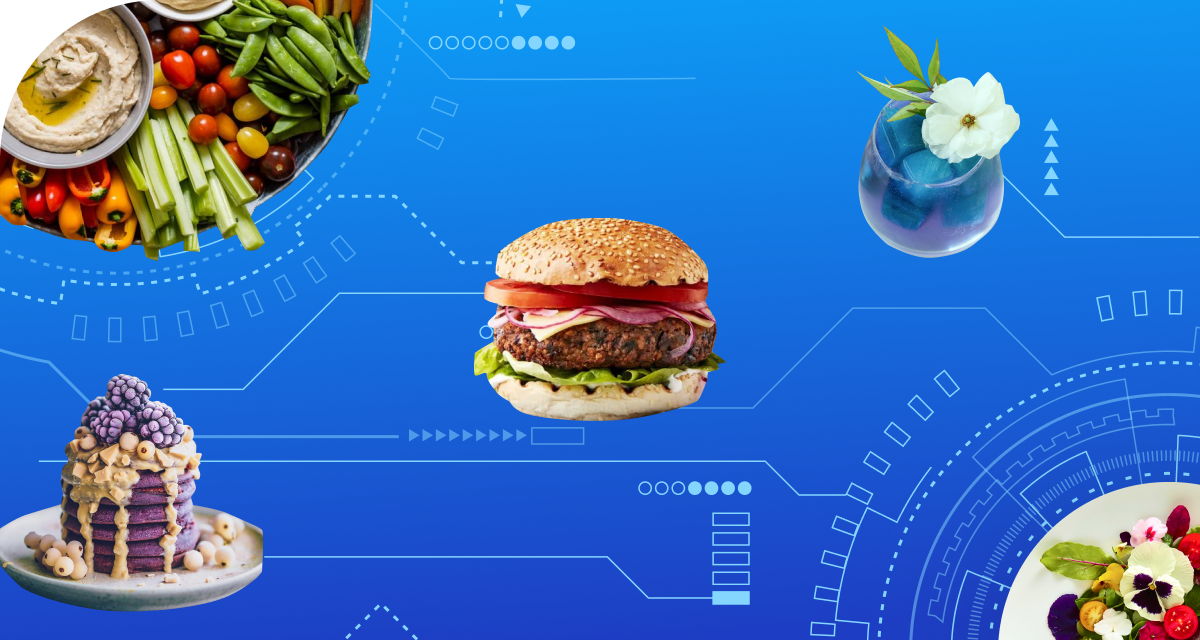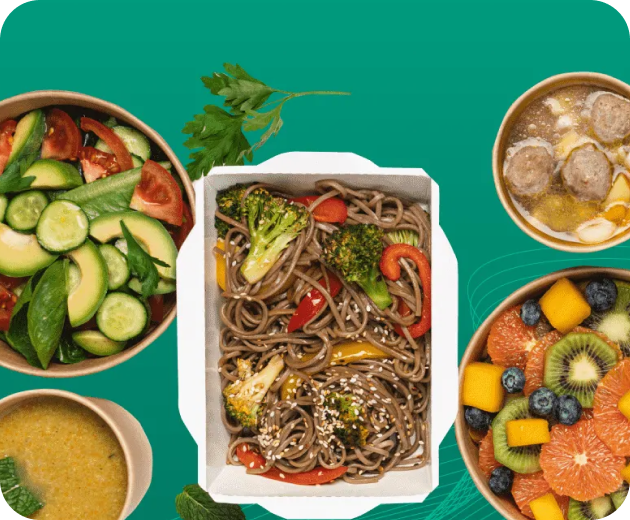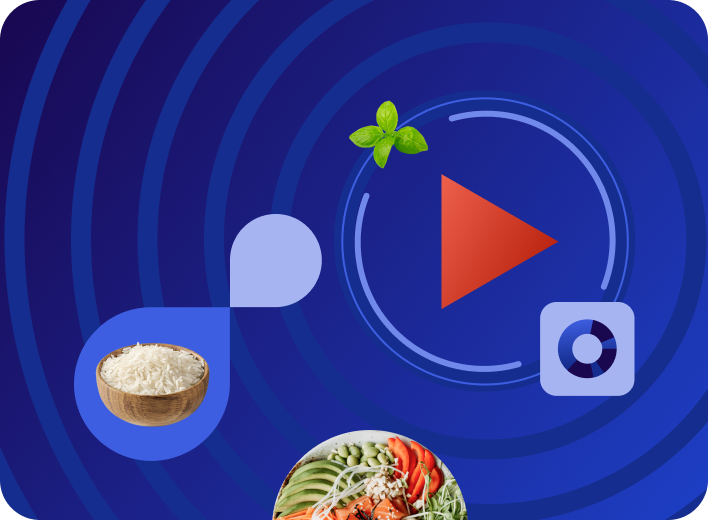Culinary Innovations with AI: How it’s Transforming the Food Industry
Culinary innovations have always been at the heart of the food industry, with chefs and cooks constantly pushing boundaries and experimenting with new flavors and techniques. But in recent years, there has been a new player in the kitchen – artificial intelligence (AI). This advanced technology is changing the way we think about food and how it’s prepared, cooked, and served.
In this article, we will explore the combination of culinary innovations and AI, and how it’s transforming the food industry.
What is Culinary Innovations?
Culinary innovations refer to the creation of new and exciting dishes, techniques, and technologies in the culinary world. It is driven by a desire to constantly improve and enhance the dining experience for customers.
Culinary innovations can range from simple changes in ingredients or cooking methods to more complex advancements such as molecular gastronomy. Chefs are always looking for ways to push boundaries and create something unique that will stand out in a crowded food market.
The Theory of Food Innovation

The theory of food innovation is based on the idea that by using science and technology, chefs can create new and exciting dishes that will appeal to customers. This theory has been around for decades, with early pioneers like French chef Auguste Escoffier experimenting with techniques such as sous vide cooking.
However, it wasn’t until the introduction of AI in the culinary world that this theory truly started to come to life. With AI, chefs are now able to analyze data and predict flavor combinations, creating dishes that not only taste great but also have a unique twist.
The Role of AI in Culinary Innovations
It’s not about replacement; culinary professionals can strategically integrate AI, empowering themselves to achieve unprecedented efficiency and effectiveness. This is evident in the industry’s history of adopting new technologies, such as self-cooking appliances and digital ordering systems, which have not led to job losses but rather have contributed to the sector’s growth and vibrancy. Let’s see how AI is revolutionizing the culinary world:
Recipe development
One area where AI is making a significant impact is in recipe development. Gone are the days of manually testing and tweaking recipes to find the perfect balance of flavors and textures. AI algorithms can analyze thousands of recipes and ingredients to create unique and innovative dishes that cater to different dietary restrictions and preferences.
Menu Planning
AI has also revolutionized menu planning for restaurants. By analyzing customer data such as past orders and ratings, along with current ingredient availability and seasonality, AI can help chefs design menus that will be well-received by customers. This not only leads to more satisfied diners but also reduces food waste in the kitchen.
Food personalization
With the help of AI, chefs can also personalize dishes for individual diners based on their dietary restrictions, allergies, and preferences. Food personalization not only enhances the dining experience but also allows chefs to cater to a broader range of customers.
Flavor Prediction
AI algorithms can analyze data from social media, food blogs, and restaurant reviews to predict upcoming flavor trends. This allows chefs to stay ahead of the curve and create dishes that will appeal to customers’ changing tastes.
Food safety and quality control
Food safety and AI are a natural fit, as AI can help identify potential contaminants and ensure that food is safe to consume. Quality control processes are also made more efficient with the use of AI, allowing for faster identification and resolution of any issues.
Supply chain management
Culinary innovations can be limited by ingredient availability and cost. AI can help chefs explore alternative ingredients and predict market trends to optimize their supply chain management. This not only allows for more diverse menu options but also helps reduce food waste by ensuring that ingredients are used efficiently.
Foodservice insights
With AI, foodservice insights can be gathered based on customer data, such as popular dishes and peak dining times. This information can help chefs and restaurant owners make informed decisions about menu planning, staffing, and pricing.
Customer engagement
AI can also be used to enhance customer engagement through personalized recommendations and promotions. By analyzing data on customer preferences, AI can suggest dishes or special offers that are likely to appeal to individual customers, leading to a more tailored and enjoyable dining experience.
Precision Cooking
Precision cooking is another area where AI is making its mark. With advanced sensors, ovens equipped with AI technology can monitor the temperature, humidity, and pressure in real-time. This results in perfectly cooked meals every time without the need for constant monitoring by a chef and makes culinary innovations easier to execute.
Food pairing
One of the most exciting applications of AI in the culinary world is food pairing. By analyzing flavor compounds and molecular structures, AI can suggest unique pairings that may have never been thought of before. This opens up a whole new realm of possibilities for chefs to create dishes that are both delicious and unexpected.
The Strategic Advantage of AI Adoption in Food and Beverage
Culinary experts and establishments poised for success understand the strategic advantage of AI adoption. Incorporating AI into their daily culinary workflows, can automate tasks that were once time-consuming and mundane, freeing up valuable human resources for more strategic, creative, and complex culinary endeavors. Instead of eliminating culinary jobs, AI’s strategic deployment aims to amplify human capabilities in the kitchen.
Ai as a Collaborative Partner in Culinary Innovations
AI will become a partner in food and beverage, working alongside human culinary intelligence to tackle challenges and drive innovation. Restaurants and food businesses leveraging AI technologies experience heightened productivity and can navigate complex flavor profiles to make informed decisions swiftly. This collaborative approach fosters culinary environments where chefs and AI complement each other’s strengths, leading to a more dynamic and efficient culinary experience.
Skill Development for the Culinary AI Era
The best way culinary professionals can embrace AI is by developing skills that complement and leverage AI technologies instead of fearing job displacement. The ability to understand, interpret, and apply insights generated by AI tools becomes a valuable asset. Chefs who invest in acquiring these skills position themselves as indispensable contributors to the culinary industry.
The Fallacy of Culinary Job Replacement by AI
The notion that AI will indiscriminately replace culinary jobs oversimplifies the intricate dynamics of the human-AI collaboration in the kitchen. Culinary professionals who engage in roles requiring creativity, flavor expertise, and innovative menu design embody inherent human skills and remain irreplaceable. AI, as a tool, excels at streamlining processes and handling repetitive tasks, enabling chefs to focus on crafting unique culinary experiences.
Future of AI in the Culinary World
As AI in the food industry advances, its potential applications in the culinary world are boundless. Some experts envision fully automated restaurants where AI-powered robots handle cooking and serving. Others foresee AI being integrated into everyday kitchen appliances like refrigerators and ovens, simplifying meal planning and preparation for home cooks.
With progress in machine learning and data analysis, AI is set to revolutionize how we produce, prepare, and consume food. From reducing food waste to creating innovative flavor combinations, AI is undoubtedly shaping the future of the culinary world for both professionals and home cooks alike.
FAQs
Innovation today is driven by technology, sustainability, and evolving consumer preferences. Chefs explore new techniques, global influences, and data-backed creativity.
Molecular gastronomy uses scientific techniques to transform ingredients—like turning liquids into foams or caviar—blending art, science, and sensory storytelling.
Chefs apply chemistry through precise temperature control, emulsification, and flavor extraction. These methods create unique textures and taste experiences that push culinary boundaries.
Final Thoughts
Culinary innovations powered by AI are not only changing the way we cook and eat but also helping to tackle pressing issues in the food industry. With its potential to optimize processes, minimize waste, and discover new flavors, AI is proving to be a valuable tool in the culinary world.
As technology continues to advance, we can expect even more exciting developments in this field. It’s an exciting time for both food lovers and tech enthusiasts as AI continues to shape the future of our plates. So next time you enjoy a perfectly cooked meal or try a unique flavor combination, you might have AI to thank!


